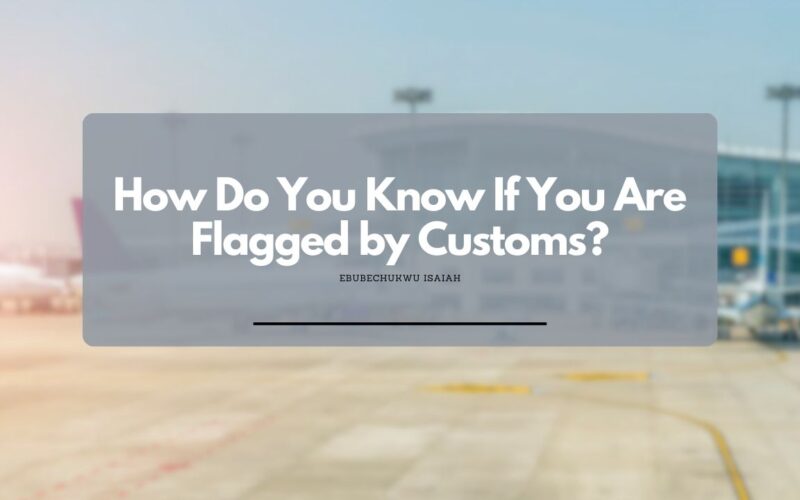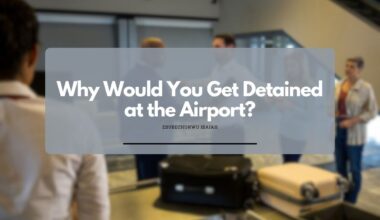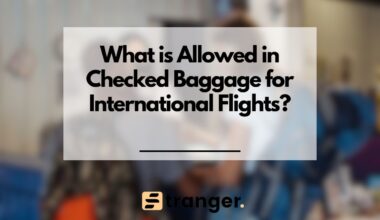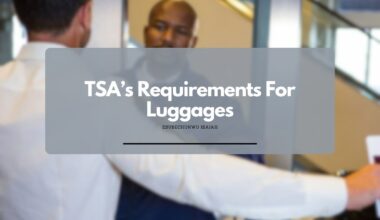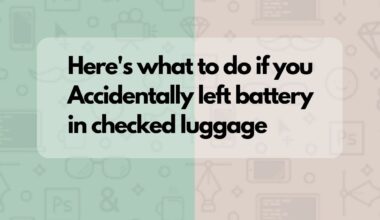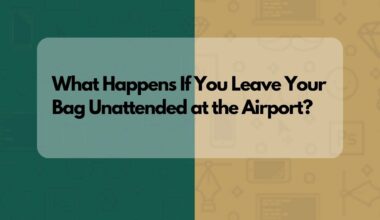As an Amazon Associate, I earn a small commission from qualifying purchases. Learn more about this.
Traveling to another country can be exciting, but also a bit worrying, especially when it comes to customs.
Have you ever wondered if customs officers have marked you for extra checks? In this article, we’ll break down the basics of being flagged by customs, in easy-to-understand language, just for you.
How Do You Know If You Are Flagged by Customs?
First things first, being ‘flagged’ by customs doesn’t mean you’ve done something wrong.
It’s a way for customs officers to check things more closely.
It could be random, or because something in your travel history caught their attention. So, how do you know if you’ve been flagged?
- Extra Questions: If you’re flagged, the first thing you might notice is more questions. Customs officers might ask you about your trip, why you’re visiting, or what you’re bringing with you. It’s normal to feel a bit nervous, but these questions are just part of their job.
- Your Luggage Gets a Second Look: Another sign is if your bags are chosen for a more detailed check. You might see your luggage being taken aside for an extra scan or a physical search. Remember, this is standard procedure and doesn’t always mean there’s a problem.
- Delays in Processing: Sometimes, being flagged means a bit of a wait. Your passport might be held a bit longer, or they might ask you to wait in a separate area. This delay can be for various reasons, like double-checking your travel documents or verifying your identity.
- Notifications or Alerts: In rare cases, if there’s a serious concern, you might be directly told by a customs officer that you’ve been flagged. This could lead to more in-depth questioning or checks.
It’s important to stay calm and cooperative if you find yourself in any of these situations.
Customs officers are there to ensure safety and compliance with the law. Being flagged doesn’t always mean trouble; it’s just a part of the process to keep everyone safe.
What Happens If You’re Flagged?
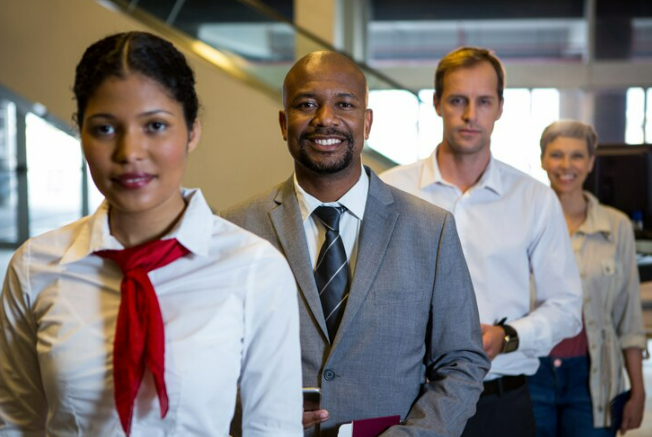
Being flagged by customs might sound intimidating, but it’s often a straightforward process.
If you’re flagged, customs officers will conduct a more detailed examination of you or your belongings.
This doesn’t necessarily mean they suspect you of wrongdoing; it’s a routine part of their job to ensure safety and compliance with the law.
When this happens, the officers might start by asking you a series of questions. These can range from the purpose of your visit, your occupation, places you’ve visited recently, to more specific inquiries about items in your luggage.
It’s important to remain calm and answer these questions honestly and clearly. Remember, the officers are just doing their job, and your cooperation can make the process faster and smoother.
In addition to the questioning, your luggage might undergo a more thorough examination.
Customs officers have the authority to open and inspect your bags. They might be looking for restricted or taxable items, or ensuring that you’re not carrying anything that’s prohibited.
This process might take some time, so patience is key.
If you’re carrying electronic devices like laptops or smartphones, they might ask to turn them on to ensure they are what they appear to be. For some airports, there are special policies for these devices.
Occasionally, they might also ask about the contents of your devices, which is a standard security measure in many countries.
In case you feel anxious or uncertain, you can always ask the officers to explain the process.
They’re typically trained to handle inquiries and can provide clarification on why you’ve been flagged and what they’re looking for.
This dialogue can help demystify the process and make it less daunting.
What If You Feel Unfairly Treated?
While you need to be searched which can sometimes note be welcoming, you still have some of due rights such as:
You have the right to:
- Be Treated Respectfully: Officers should treat you with respect.
- Ask Questions: You can ask why you’re being checked.
- Get Help: If you’re not comfortable with the language, you can ask for a translator.
Now, what do you do if these rights are violated?
Firstly, stay calm and composed. Reacting with anger or frustration can escalate the situation.
Politely ask for the reason behind the specific actions of the customs officers. Understanding their rationale can sometimes clarify misunderstandings.
If you’re still not satisfied, you can request to speak with a supervisor or a higher-ranking officer.
This is your right, and often, bringing a supervisor into the conversation can help resolve issues more effectively.
Additionally, most airports and border crossings have a formal process for filing complaints.
Don’t hesitate to ask how you can formally register your concerns. These complaints are taken seriously and can lead to improvements in how things are handled in the future.
If you feel that your rights have been violated, or if you face significant issues, such as discrimination or unjust treatment, consider seeking legal advice.
Many organizations and lawyers specialize in travelers’ rights and can provide guidance or assistance.
